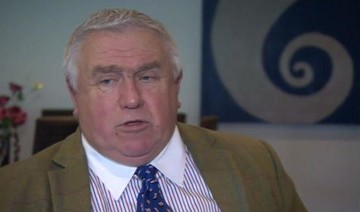UNITED NATIONS, New York: Warning that the world is in “great peril,” the head of the UN says leaders meeting in person for the first time in three years must tackle conflicts and climate catastrophes, increasing poverty and inequality — and address divisions among major powers that have gotten worse since Russia invaded Ukraine.
In speeches and remarks leading up to the start of the leaders’ meeting Tuesday, Secretary-General Antonio Guterres cited the “immense” task not only of saving the planet, “which is literally on fire,” but of dealing with the persisting COVID-19 pandemic. He also pointed to “a lack of access to finance for developing countries to recover — a crisis not seen in a generation” that has seen ground lost for education, health and women’s rights.
Guterres delivered his “state of the world” speech at Tuesday’s opening of the annual high-level global gathering. UN spokesman Stephane Dujarric said it contained “a sober, substantive and solutions-focused report card” for a world “where geopolitical divides are putting all of us at risk.”
In an alarming assessment, Guterres told world leaders that nations are “gridlocked in colossal global dysfunction” and aren’t ready or willing to tackle the major challenges that threaten the future of humanity and the fate of the planet.
Speaking at the opening of the General Assembly’s annual top-level meeting, the UN chief pointed to the war in Ukraine, multiplying conflicts around the world, the climate emergency, the dire financial situation of developing countries, and recent reversals of progress on such UN goals as ending extreme poverty and providing quality education for all children.
“Our world is in peril — and paralyzed,” Guterres said.
But he said there is hope.
Stressing that cooperation and dialogue are the only path forward, he warned that “no power or group alone can call the shots.”
“Let’s work as one, as a coalition of the world, as united nations,” he urged leaders gathered in the vast General Assembly hall.
The 77th General Assembly meeting of world leaders convenes under the shadow of Europe’s first major war since World War II — the conflict between Russia and Ukraine, which has unleashed a global food crisis and opened fissures among major powers in a way not seen since the Cold War.
Yet nearly 150 heads of state and government are on the latest speakers’ list. That’s a sign that despite the fragmented state of the planet, the United Nations remains the key gathering place for presidents, prime ministers, monarchs and ministers to not only deliver their views but to meet privately to discuss the challenges on the global agenda — and hopefully make some progress.
At the top of that agenda for many: Russia’s Feb. 24 invasion of Ukraine, which not only threatens the sovereignty of its smaller neighbor but has raised fears of a nuclear catastrophe at Europe’s largest nuclear plant in the country’s now Russia-occupied southeast.
Leaders in many countries are trying to prevent a wider war and restore peace in Europe. Diplomats, though, aren’t expecting any breakthroughs this week.
The loss of important grain and fertilizer exports from Ukraine and Russia has triggered a food crisis, especially in developing countries, and inflation and a rising cost of living in many others. Those issues are high on the agenda.
At a meeting Monday to promote UN goals for 2030 — including ending extreme poverty, ensuring quality education for all children and achieving gender equality — Guterres said the world’s many pressing perils make it “tempting to put our long-term development priorities to one side.”
But the UN chief said some things can’t wait — among them education, dignified jobs, full equality for women and girls, comprehensive health care and action to tackle the climate crisis. He called for public and private finance and investment, and above all for peace.
The death of Britain’s Queen Elizabeth II and her funeral in London on Monday, which many world leaders attended, have created last-minute headaches for the high-level meeting. Diplomats and UN staff have scrambled to deal with changes in travel plans, the timing of events and the logistically intricate speaking schedule for world leaders.
The global gathering, known as the General Debate, was entirely virtual in 2020 because of the pandemic, and hybrid in 2021. This year, the 193-member General Assembly returns to only in-person speeches, with a single exception — Ukrainian President Volodymyr Zelensky.
Over objections from Russia and a few allies, the assembly voted last Friday to allow the Ukrainian leader to prerecord his speech because of reasons beyond his control — the “ongoing foreign invasion” and military hostilities that require him to carry out his “national defense and security duties.”
By tradition, Brazil has spoken first for over seven decades because, at the early General Assembly sessions, it volunteered to start when no other country did.
The US president, representing the host country for the United Nations, is traditionally the second speaker. But Joe Biden is attending the queen’s funeral, and his speech has been pushed to Wednesday morning. Senegalese President Macky Sall is expected to take Biden’s slot.


























